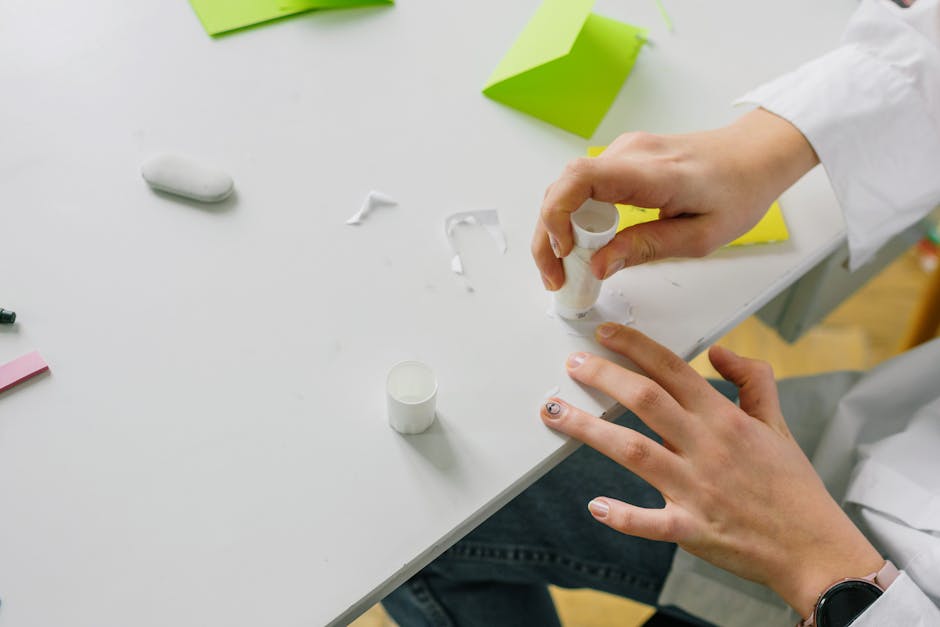 Photo from Pexels
Photo from Pexels
Originally Posted On: https://www.permabond.com/resource-center/best-adhesive-plastic/
Often the strongest glue for plastic may not be the best adhesive for plastic. There are a variety of factors to consider when choosing the best plastic glue. Obviously, bond strength is at the top.
For most plastic bonding applications cyanoacrylate adhesives, UV curable adhesives, MMAs, as well as some epoxy and structural adhesives can be used. The large variety of adhesives available can make selecting the best adhesive for plastic seem difficult.
To determine which adhesive for plastic will have the highest bond strength, it is often necessary to know the exact nature of the plastic. The type of plastic as well as the surface condition of that plastic and what the bond must resist.
Permabond cyanoacrylate adhesive bond most ABS (Acrylonitrile butadiene styrene), PMMA (acrylic), Nylon, Phenolic, Polyamide, Polycarbonate, PVC (both rigid and flexible). For cyanoacrylate adhesive to show good bond strength on polyethylene or polypropylene Permabond POP primer should be used first.
All Permabond plastic bonding UV curable adhesives bond well to most ABS (Acrylonitrile butadiene styrene), Nylon, Phenolic, Polyamide, Polycarbonate, PVC (both rigid and flexible). Special plastic bonding UV curable adhesives are available for acrylic.
One part epoxy adhesives are generally not considered as the minimum cure temperature of the epoxy tends to be higher than the maximum temperature resistance of many plastics. Higher temperature resistant plastics such as PEEK and PBT can be bonded with special heat cure epoxy.
Two part epoxy adhesives can be used to bond certain plastics. Special grades of plastic bonding epoxy are available from Permabond where high strength performance is required. Modified epoxy adhesives are two part epoxy adhesives that provide much higher flexibility than traditional two part epoxy adhesives.
Structural acrylics will also bond most plastics. Many types are available including surface activated, bead on bead, and two component. MMAs (methyl methacrylate adhesives) are an effective way of bonding plastic substrates and offer impressive adhesion strength – often substrates break before the adhesive bond is broken.
What about those tricky, hard-to-bond low surface energy plastics?
Specialty grade acrylics such as Permabond TA4610 are available to bond polypropylene, polyethylene, and other polyolefins with no need for a primer.
So if all of these adhesive types bond plastic how do I choose the best adhesive for plastic?
Many applications have more than simply bond strength as a requirement. Some of the other factors most engineers must address include appearance, application and cure process, chemical resistance, and temperature resistance.
Appearance
UV plastic adhesives can provide invisible bonds which are often desirable on clear plastics. Dual cure grades are available for colored plastics. Cyanoacrylates also provide clear bonds. For best results on dark colored plastics when using a cyanoacrylate adhesive, choose a low odor, non-blooming grade.
Application and Cure process
Cyanoacrylates (instant adhesives) are desirable due to the near instantaneous fixture strength. However, in some applications, more time is needed to apply or accurately align components. UV adhesives provide that but note that many plastic bonding UV curable adhesives can also cure with visible light (normal room lighting) so if considerable time is needed for alignment or dispensing, be sure to shield the parts from light.
Chemical resistance of the bond
Adhesive Type Resistance to Non-Polar Solvents
- Cyanoacrylate Good
- One part epoxy Excellent
- Two part epoxy Very Good
- Structural acrylic Very Good
- UV Curable Very Good
Examples of Non-Polar solvents include motor oil, gasoline, toluene.
Adhesive Type Resistance to Polar Solvents
- Cyanoacrylate Poor
- One part epoxy Excellent
- Two part epoxy Very Good
- Structural acrylic Good
- UV Curable Very Good
Examples of polar solvents include: water, ethylene glycol, isopropyl alcohol, and acetone.
Temperature resistance of the bond.
Adhesive Type Standard Heat Resistant Adhesive High Heat Resistant Adhesive
- Cyanoacrylate 185°F (85°C) 480°F (250°C)
- One part epoxy 350°F (180°C) 570°F (300°C)
- Two part epoxy 175°F (80°C) 570°F (300°C)
- Structural acrylic 300°F (150°C) 390°F (200°C)
- UV Curable 250°F (120°C) 300°F (150°C)
For more detailed information about bonding specific plastics, click the links below.
- ABS
- Acetal
- Acrylic
- PET
- PTFE
- Phenolic
- Polyurethane
- Polypropylene
- Polystyrene
- PVC
- Silicone
If your plastic isn’t listed, please contact Permabond for a recommendation.




